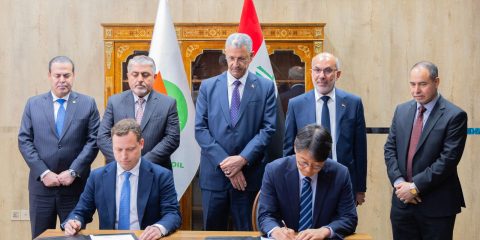Basra after the British: division and despair in Iraq’s oil boomtown
Laden with nets and reeking of rotten fish, the rusting dhow Ameera has just been moored up in the small Iraqi port of Al-Faw, 50 miles south-east of Basra. After 10 days of illegal fishing out in the Persian Gulf, the boat’s stocky nawkhatha (captain), Abu Karar, punches an old plastic calculator with his rough, […]Ghaith Abdul-Ahad writes for The Guardian:
Laden with nets and reeking of rotten fish, the rusting dhow Ameera has just been moored up in the small Iraqi port of Al-Faw, 50 miles south-east of Basra. After 10 days of illegal fishing out in the Persian Gulf, the boat’s stocky nawkhatha (captain), Abu Karar, punches an old plastic calculator with his rough, stubby fingers, then scribbles numbers on the back of a cigarette box.
The journey has gone pretty well. The three-man crew caught three very large croakers in Kuwaiti waters and then sold them on to Pakistani traders in Iranian waters, all the while evading the coastguards of three nations. But the money made (about US$1,250) is not enough for Abu Karar to take back anything to his family. And often, these illegal trips carry a heavier price.
“I have been caught more than 30 times,” says the captain. “The Kuwaitis beat us and the Iranians put us in jail – but what other options do I have? We are a trampled nation.”
Thirteen years on from the invasion that toppled Saddam Hussein, Iraq is a country still dogged by war and corruption, pulled apart by opposing political and religious forces, and struggling to define its character.
The trauma is all too apparent in Basra, the largest city in southern Iraq – whose six-year period under British control, following Saddam’s overthrow, will come under renewed scrutiny this week with the expected release of the Chilcot report. The report will examine both the decision to go to war and Britain’s conduct in the invasion and its aftermath.
All around the city, the legacy of that time hangs heavy.





